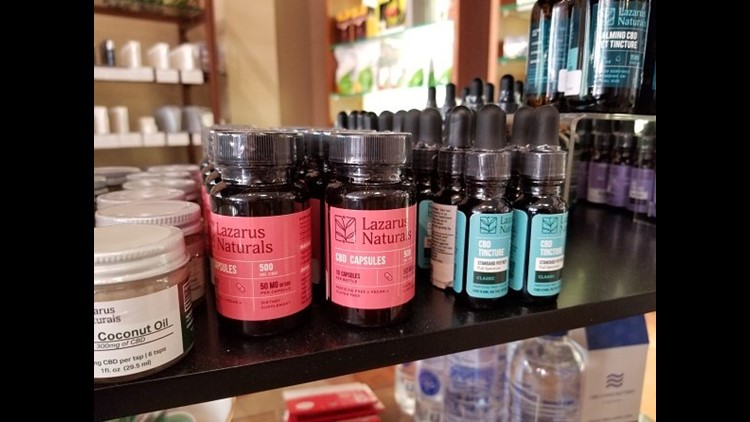The use of cannabidiol hemp oil, or CBD, has become popular in the United States since the 2014 Farm Bill legalized its sale and use as a health supplement.
Here are the answers to some frequently asked questions about CBD:
What is CBD?
CBD stands for cannabidiol, which is the second most prevalent of the active ingredients of cannabis (marijuana). While CBD is an essential component of medical marijuana, it is derived directly from the hemp plant, which is a cousin of the marijuana plant and contains only trace amounts of tetrahydrocannabinol, or THC, which is the psychoactive compound found in marijuana.
Under federal law, private enterprises developing hemp-derived CBD are obligated to cultivate hemp exclusively for industrial purposes. They cannot cultivate the plant’s flowering tops, which contain THC. Federal law says CBD products cannot contain more than 0.3 percent of THC.
Because CBD products contain only trace amounts of THC, they are non-psychoactive, which means there is no “high” derived from using them.
Is CBD Legal?
Yes, CBD derived from hemp plants is legal, but there are caveats. All 50 states have laws legalizing CBD with varying degrees of restriction, and while the federal government still considers CBD in the same class as marijuana, it doesn’t habitually enforce against it, according to Harvard Health Publishing.
In December 2015, the FDA eased the regulatory requirements to allow researchers to conduct CBD trials.
Why do people use CBD products?
Research has indicated CBD is beneficial for those who suffer from epilepsy, showing some promise for reducing seizure frequency and improving quality of life.
In 2018, the FDA approved the cannabidiol drug Epidiolex for treatment of epilepsy associated with Lennox-Gastaut syndrome or Dravet Syndrome in patients two years of age and older. Those disorders do not typically respond to antiseizure medications, according to Harvard Health Publishing.
CBD is also used to treat anxiety and insomnia; studies suggest it may help with both falling asleep and staying asleep. It is also being studied for use as an option for treating different types of chronic pain, such as arthritis.
Another study demonstrated the mechanism by which CBD inhibits inflammatory and neuropathic pain, two of the most difficult types of chronic pain to treat, according to Harvard Health Publishing — but the journal also points out that more study in humans is needed in this area to substantiate the claims of CBD proponents about pain control.
A veterinary sciences firm said hemp and CBD products are safe and effective for cats and dogs to help ease their pain.
Ellevet Cciences published the first safety study on the use of CBD. Conducted over three-months, the study showed CBD is safe at a dose of two milligrams — twice a day — for pets. Ellevet plans to conduct more studies to see how useful the products will be in helping with seizures and acute pain, among other conditions.
Can you get high from CBD?
No, CBD does not get you high.
Hemp-derived CBD products cannot contain more than 0.3 percent of THC, the psychoactive compound found in marijuana.
Is it safe?
According to Harvard Health Publishing, the side effects of CBD include nausea, fatigue and irritability.
A significant safety concern with CBD is that it is primarily marketed and sold as a supplement, not a medication. The FDA does not currently regulate the safety and purity of such supplements, so users cannot know for sure that the product they’re ingesting has active ingredients at the dosage on the label, or whether the product contains other unknown ingredients.
More research is also needed to determine the most effective therapeutic dose of CBD for any particular medical condition, according to Harvard Health Publishing.
The Food and Drug Administration is also expressing its concerns about CBD.
“The FDA is concerned that people may mistakenly believe that trying CBD ‘can’t hurt,'” the agency said. “(We want) to be clear that we have seen only limited data about CBD’s safety and these data point to real risks that need to be considered.
“Consumer use of any CBD products should always be discussed with a healthcare provider. Consumers should be aware of the potential risks associated with using CBD products. Some of these can occur without your awareness, such as:
- Liver injury
- Drug interactions
- Male reproductive toxicity



